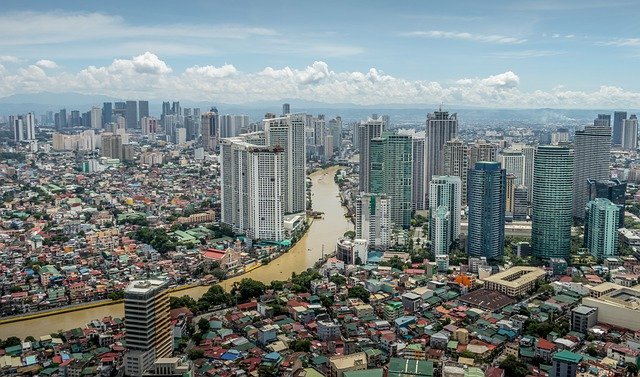
-
In his last State of the Nation Address on July 26, President Rodrigo Duterte reiterated his call for Congress to immediately pass priority bills he had earlier certified as urgent, including amendments to the Public Services Act
-
Also among legislative priorities are amendment to the Foreign Investments Act and Retail Trade Liberalization Act
In his last State of the Nation Address (SONA) on July 26, President Rodrigo Duterte bared his legislative agenda for his remaining term in office, reiterating a call for Congress to immediately pass bills, including amendments to the Public Service Act (PSA).
The PSA amendment forms part of Duterte’s 12 legislative priorities that also includes amending the Foreign Investments Act (FIA) as well as the Retail Trade Liberalization Act (RTLA). Duterte in the 2020 SONA also pushed for approval of the three measures.
All three measures will be deliberated at the Senate, along with seven others, when it resumes sessions on July 26, the Upper House said in a statement on July 25.
Other priority measures are:
- Passage of a unified system of separation, retirement, and pension for uniformed personnel
- Free legal assistance for police and soldiers
- Creation of a department for overseas Filipinos
- E-governance act
- Creation of the Philippine Center for Disease Control and Prevention
- Creation of the Virology Institute of the Philippines
- Creation of a department of disaster resilience
- Law mandating evacuation centers in provinces, cities, and municipalities mandatory
- Bureau of Fire Protection modernization
Duterte last April certified the PSA, FIA and RTLA bills as urgent, saying they were needed “to address the immediate and continuing need for legislative reforms to provide a more conducive investment climate, increase job opportunities, foster more competition and further support the country’s economic growth.”
The House of Representatives in March 2020 had already passed on third and final reading House Bill 78, which seeks to amend the PSA and provide a clear statutory definition of a public utility and limit public utility to just three services—distribution of electricity; transmission of electricity; and water pipeline distribution and sewerage pipeline systems.
Excluded from the definition of public utility are transportation, telecommunications, broadcasting, and other public services. Their exclusion will effectively allow 100% foreign ownership in these industries as they will no longer be considered public services or be covered by the 60%-40% ownership principle under the Constitution.
The counterpart bill in the Upper House, Senate Bill 2094, is pending approval on second reading.
Aside from being certified as urgent, the PSA bill was also one of the priority measures identified by the Legislative-Executive Development Advisory Council for passage before the end of the current administration. It was endorsed for approval by the Senate Public Services Committee last March, and has been one of the priority measures pushed by various business groups and chambers of commerce.
READ: Industry groups to Congress: pass 17 bills, including amended PSA
The proposed amendments to the PSA are seen as a way to improve basic public services and lower their cost.
Stakeholders’ concerns
Stakeholders from the transport industry, particularly truckers and shipping operators, have raised concerns over amending the PSA, particularly on allowing 100% foreign ownership in the transportation industry.
The Confederation of Truckers Association of the Philippines feared approval of the PSA bill will encourage entry of foreign-owned trucking companies, dampen industry growth and displace small- and medium-sized local players.
READ: Truckers: amended PSA Act to usher in stiff competition
The Philippine Inter-Island Shipping Association (PISA) suggested that SB 2094 should include seaports and airports as part of the “critical infrastructure” system to complete the supply chain.
READ: PSA bill should include sea, air ports as ‘critical’ infra, say domestic lines
PISA also expressed concern that the bill’s reciprocity provision compromises the viability of critical infrastructure, and thus reciprocity should be on a “one-on-one basis” within the same specific industry sector.
One of the safeguards under SB 2094 is the reciprocity clause, which provides that foreign nationals may own more than 40% of public services identified as critical infrastructure only if their country accords a reciprocal right to Filipinos by law, treaty or international agreement.
“Allowing reciprocity clause to include investment in any economic sector is in effect compromising the very purpose and essence of ensuring the viability of essential critical infrastructure,” PISA pointed out.
“If the reciprocity clause must be retained, we recommend that the reciprocity be on a ‘one on one basis’ within the same specific industry sector—allowing foreign nationals to own more than 40 percent in sea, air, and land public transport asserts and infrastructure, only if their own countries accord the same privilege to Filipinos in the same business activity, with the same potential business value and opportunity, and with consideration by not only NEDA [National Economic and Development Authority] but by the Department of National Defense,” PISA said.
For example, PISA said reciprocity in the case of an Indonesian or Japanese shipping company investing in the domestic trade without a Filipino partner should allow a Filipino shipping company “to also enter the very strict Indonesian and Japanese cabotage regime which for small ships requires 100 percent ownership.”
Since Indonesia has more islands than the Philippines, PISA noted that reciprocity in their respective shipping industries could potentially be a more than “one-on-one,” which would not be a fair exchange.
On the other hand, if a Singaporean shipping company invests in the Philippines, “we would not have the ability to also benefit from their trade since Singapore does not have an equivalent scale for coastal trade.” – Roumina Pablo




